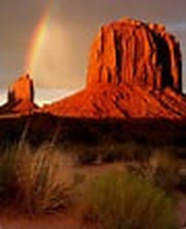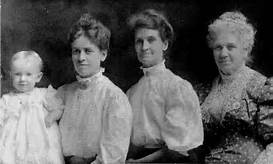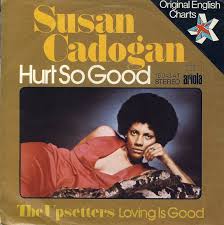|
Free Trial: Weekly "Lessons in Presence" (video/audio/text teachings, chants and guided meditations), Live-Streamed Workshops and Services, and Extensive Archive Or Make Contribution Toward These Weekly Teachings 
“Vayifga BaMakom – He encountered the Place..."
This week’s reading, Parshat Vayeitzei, begins with Jacob running away from his brother Esau, who wants to murder him. It says,
“Vayeitzei Ya’akov mibe’er shava vayelekh kharana, vayifga baMakom- “Jacob went out from Be’er Sheva and walked toward Haran, and he encountered The Place…” It’s a strange phrase- “He encountered The Place…” But the word for The Place- HaMakom- is actually one of the Hebrew names for God. By calling God HaMakom, The Place, the text is giving us a hint about where the Divine can be found. For Jacob, “The Place” was between the home he had left behind and the new home he was going to. In other words, between the past and the future. So, where is this special Place between your past and your future in which we can encounter the Divine? That Place, of course, is always where we already are! And yet, the mind tends to see this Place as insignificant compared to our imagined past and future. After all, our past is our story, our identity, and our future is our desire, our goal. So, past and future are important, but when they become more important than the present, meaning- when imagination becomes more important than Reality, this creates a feeling of being disconnected from Reality, of being disconnected from this Place, from this moment. And when that feeling of being disconnected dominates your life, and the alienation becomes more and more painful, you can reach a point where something has to shift. That’s what happened to Jacob. His origin and his goal became so heavy, that for an instant he was able to pop out of the story and see the moment. So, before Jacob encounters the Present, he’s just running. But now that Jacob is beginning to despair, he is letting go of his story in time; he is giving up hope. And in this “giving up,” he begins to notice the place he is in. He brings his mind all the way down to the stones, and becomes still. So on this Shabbat Vayeitzei, the Sabbath of Going Out, may we go out from our automatic and unconscious responses to things, may we become still and connect with the Presence of this moment, so that we may say, “Akhein yesh Hashem bamakom hazeh, v’anokhi lo yadati- Surely God is present in this place and I didn’t even know it!” Good Shabbos!
2 Comments

“Eileh Toldot Yitzhak – These are the generations of Isaac..."
We’re looking at the very rich Parshat Toldot, the Parshah of Generations. It says, “V’eileh toldot Yitzhak ben Avraham – these are the generations or the offspring of Isaac, son of Abraham – Avraham holid et Yitzhak – Abraham begot Isaac. So right away we have a strange construction: it says that Isaac, or Yitzhak, is the son of Abraham, Avraham, then it says, Avraham begot Yitzhak. Well, obviously if Yitzhak is the son of Avraham, then of course Avraham begot Yitzhak. It seems redundant, right? So, we’ll come back to that question.
A little further down, it says that Yitzhak’s wife, Rivka, or Rebecca, became pregnant, and that “Vayitrotz’tzu habonim b’kirbah – the children were fighting inside her.” The children are the twins Yaakov and Esav, Jacob and Esau. Now, in many commentaries of the past, Yaakov and Esav represent some form of duality. Sometimes Esav is the body and Yaakov is the soul, sometimes Esav is earthiness and Yaakov is scholarliness, but most of the time, these dualities are framed as some form of bad and good. And just as Esav and Yaakov are fighting within Rivka’s womb, so too there’s the idea of a battle going on in each one of us between the Yetzer HaTov, the drive toward good, and the Yetzer HaRa, the drive toward evil. This concept, that within us there’s a yetzer hatov and a yetzer hara, a good urge and a bad urge, is a basic Jewish spiritual concept, but I want frame it a little differently. Rather than the yetzer hara being the drive toward bad, I want to understand it as the drive toward dividing the world into good and bad. This is also pictured in another form at the beginning of the Torah, as the Eitz Daat Tov V’ra – the Tree of Knowledge of Good and Evil in the Garden of Eden. So that’s the Yetzer Hara, dividing the world into good and bad. And then, rather than the yetzer hatov being the drive to do good, I want to understand it as the drive to see the goodness in everything. This, of course, is the Eitz Hayim – the Tree of Life in the Garden of Eden, because when you’re able to see the goodness in everything, which means the underlying goodness of Being Itself, not pretending that violence is really nice, or that sad is really happy, but just tapping into the underlying goodness of simply Being, then it’s really like eating from the Tree of Life. There’s a simple bliss and spaciousness of this moment. When we understand it that way, then we can see that we always need both Esav and Yaakov; we need Esav, we need to differentiate between good and bad, between nourishing food and poison, between getting up with the alarm and sleeping late, and so on. That’s why Esav is the hunter- going out and taking what he needs from the world. But, if that’s all we’ve got, then we’re totally identified with the mind, with agendas and judgment, and the Tree of Life is hidden behind the fiery sword of thoughts and feelings. So we also need Yaakov; we need to simply open to this moment, to taste the bliss of Being, which is why we came into being in the first place. If life is just a tragic struggle leading nowhere, then what’s the point, right? The point is, there’s a Garden of Eden within; there’s a Tree of Life with fruit to taste right now, if you’re open. That’s why Yaakov eventually gets renamed Yisrael, Israel, and B’nai Yisrael, the Children of Israel, are characterized by freedom, by coming out of Egypt, out of slavery. Because in this moment, there is no agenda, there is no movement, there is no time. There is only the blessed space of Being within which everything is unfolding, and you are that blessed space. So, on this Shabbat Toldot, the Sabbath of Generations, may we surrender ever more deeply into Reality as it unfolds in this moment, making Presence an ever new habit in this generation, and live from the open heart, responding to whatever is needed. Good Shabbos!! 
“V’ayavo Avraham – Avraham came to eulogize Sarah and weep for her..."
This week’s Torah reading is Parshat Hayei Sarah, which means, “The Life of Sarah,” and it begins by declaring that Sarah’s life was one hundred and twenty-seven years. Then it says, and I’m paraphrasing, “Vatamat Sarah – Sarah died – Vayavo Avraham – Avraham came – lispod l’Sarah v’livkotah – to eulogize Sarah and to weep for her.”
So, first Sarah dies, then Avraham comes and eulogizes her, then he weeps. It’s a strange verse. Why does it say that Avraham “comes?” Where is he coming to? And if he’s coming to Sarah after she dies, wouldn’t he weep first, and then eulogize her? And to whom is he eulogizing? Isn’t a eulogy something you deliver to others? But this verse doesn’t mention any other people. It just says that he comes – doesn’t say where he’s coming to – then he eulogizes, then he weeps. To answer, let’s reflect first on the question, what is death? Death means the end of a continuity; the end of something or someone that came into being, that was born, that had some span of life, and then expires. And when a loved one that plays a major role in your life dies, it’s not just the person that dies, it’s a continuity in your life that dies as well. Our lives contain all kinds of continuities – the place we live, the bed we sleep in, and so on. And part of that tapestry of continuity is composed of our relationships. If one of those relationships comes to an end because the person comes to an end, then something of ourselves as died as well; the tapestry, or the form of our lives gets torn. And of course, the experience of being torn is pain. So, at this deeper level, we’re talking about pain. And what’s the normal response to pain? AAHH! Crying out. But that’s not what Avraham does. – Vayavo Avraham lispod l’Sarah v’livkotah. First Avraham comes, then he eulogizes, then he cries out. Why? Normally, we cry out in pain because we don’t like the pain. In fact, that’s the whole reason for pain to exist. Pain is there as a signal for danger, so it has to be unpleasant; you’re supposed to not like it. You feel your hand burning, you’ve got to get it out of the fire fast. If you only noticed intellectually, “oh, my hand is in the fire, that’s dangerous,” you’d already be burned. You need something to force you to get out of the fire immediately, and that’s pain. So, crying out is a venting of that impulse to get away from the thing causing you pain, and get yourself to safety. It’s also a signal for others to help you, just as when a baby cries out, and the parent immediately tries to see what’s wrong and help. That’s the ordinary way we operate. But there’s another way to relate to pain, and that is instead of trying to get away, to deliberately bring yourself into connection with the pain, to come to the pain. Vayavo Avraham – come to the pain that is arising and be with it on purpose; that’s the practice of Presence, of being conscious with your experience, rather than be taken over by your impulse to escape. Again, it’s not that there’s anything wrong with that impulse. If your hand is burning, you should certainly escape by moving your hand out of the fire. But when we feel emotional pain, the impulse is the same; you want to get away from it, vent, blame and so on. But if instead you become present with your pain, then you use the pain to strengthen your Presence, to dis-identify from your impulses, and to ultimately know yourself ever more deeply as the space of consciousness within which your experience in this moment is arising. So, on this Shabbat Hayei Sarah, the Sabbath of Life, may we remember to come ever more deeply into the truth of this moment, both in pain and joy, and through Presence with whatever is, grow in our experiential knowledge of the radiant awareness that we are. Good Shabbiss! |
Archives
July 2024
|
 RSS Feed
RSS Feed